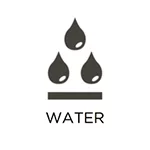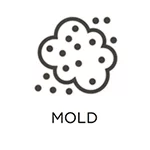RestorationMaster
Water damage is already an emergency, but water contaminated with sewage makes the situation worse. Sewage water can come from sewage backups, natural flooding, and toilet overflows and it can spread very quickly throughout the property. It is important to react right away to sewage-contaminated water because sewage can cause serious property damage and its presence is a danger to your health. You need to call a professional disaster restoration team that can restore water damage and effectively clean biohazard materials.
At RestorationMaster, we provide sewage cleaning services in Morristown, NJ to remove sewage water from homes and businesses and ensure that the affected areas are cleaned and disinfected. Our sewage cleaning technicians will remove the sewage water using advanced water extraction equipment and we use powerful cleaning products and disinfectants to clean the affected areas and restore them to a safe condition.
Sewage Dangers and Health Risks
Sewage water is both damaging and dangerous as it can permanently damage affected furnishings and building materials and increase the risk of negative health effects. As porous materials absorb the sewage water, they also absorb the waste materials within the sewage which is why furniture, drywall, and other materials can quickly sustain permanent damage. Sewage also leaves behind an unpleasant odor that must be removed with professional deodorization processes.
In addition to the property damage it causes, sewage can have a negative impact on your health. If not removed from an area quickly by a water restoration crew, sewage water’s biohazard waste materials and dangerous toxins can spread illness or infection.
You need to stay away from water that is contaminated with sewage and call our professionals immediately for safe sewage removal.
Sewage Cleaning Services in Morristown, NJ
Our sewage backup cleanup professionals at RestorationMaster are water damage restoration experts and IICRC-certified cleaning specialists. We have the training and equipment to deal with small and large sewage problems and get your property back to its original condition. We will start by removing the sewage water and drying the damaged areas and materials. All permanently damaged materials will be removed. Once the sewage is removed and the affected areas are dry, we will thoroughly clean and sanitize the area to ensure it is safe.
Our sewage cleanup in Morristown, NJ consist of the following steps:
- Emergency water extraction and sewage removal
- Biohazard cleaning including removal of damaged content, debris, carpeting etc.
- Demolition of drywall and other building materials contaminated with sewage
- Disinfection and cleaning of the affected areas
- Repair and restoration of the damaged areas
- Odor removal
Call us for Sewage Backup Cleanup in Morristown, NJ
Sewage can cause serious damage fast which is why you need to call our professionals at RestorationMaster for effective sewage cleanup. Our sewage cleaning technicians will ensure that the sewage spill is removed and that the area is cleaned and disinfected to eliminate health risks.
Give us a call at (973) 381-2313 for sewage backup cleanup in Morristown, NJ.
More Information on Sewage Cleanup
How to cleanup sewage backup?
Depending on how serious the situation is, you might have ways to lessen the damage, rescue your belongings, or manage the issue on your own. However, keep in mind that sewage cleanup can be physically demanding and risky, so only attempt it if the spill is small and easy to handle. Read on how you can handle sewage backup at home.
How to safely clean toilet overflows?
Toilet overflows that result in wastewater spills are highly contaminated. This type of wastewater, classified as black water, is the most toxic among the three categories of floodwater. Even though wastewater is primarily water (99.9 percent), homeowners should be concerned about the remaining 0.1 percent of the toilet overflow. Explore some recommendations on how to prevent and safely manage toilet overflows.
Dangers of stagnant water & how to remove it?
Stagnant water occurs when water accumulates inside or outside your home. Typically, outdoor water will seep into the ground. However, indoor stagnant water can linger for days or weeks, leading to mold growth and unpleasant odors. It’s crucial to eliminate stagnant water promptly to prevent additional damage. The sooner you remove it, the better your chances of salvaging carpeting, drywall, and wooden items. Our restoration professionals have outlined various methods for safely removing this hazardous water.
Nearby Sewage Cleanup Services in New Jersey
Sewage Restoration in Parsippany, NJ
Sewage Backup Cleanup in Mount Olive, NJ
Sewage Flood Cleanup in Randolph, NJ
Black Water Removal in Montville, NJ
Sewage Cleaning Professionals in Chatham, NJ
Sewer Cleaning Company in Jefferson, NJ
Emergency Sewage Cleanup in Rockaway, NJ
Frequently Asked Questions
How long does a landlord have to fix sewage backup?
In New Jersey, the law for landlords and tenants doesn’t give an exact time frame for fixing problems in rental units. However, usually, sewage issues are taken care of within 7–14 days. If a landlord doesn’t address the problem promptly, tenants can handle the repairs themselves and deduct the costs from their rent.
Does home insurance cover sewage backup?
While your homeowners insurance protects against some unexpected water damage, it usually doesn’t cover water back-ups and sump pump overflows. However, you have the option to purchase additional water back-up coverage, which can compensate for damages resulting from sewage back-ups or malfunctioning sump pumps.
Is sewage backup an emergency?
Yes, Sewage backup is an emergency because it contains harmful pathogens and bacteria that can cause serious health issues if not handled immediately. Additionally, the connection between household pipes and sewer lines means it can contaminate water sources, leading to further problems.
How to clean sewage backup in basement?
Here are some simple steps to clean sewage backup in the basement:
- Wear protective gear like gloves, goggles, and a mask.
- Turn off your home’s main water supply to stop sewage flow.
- Use a wet vacuum or mop to clear standing water.
- Throw away anything touched by sewage that can’t be cleaned.
- Scrub surfaces with hot water and disinfectant.
- Open windows and use fans to help dry the area.
- Call RestorationMaster for an emergency situation




